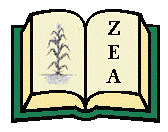
Zea E-Books Collection
Files
Download Full Text (2.7 MB)
Description
Scholars of all stripes are turning their attention to materials that represent enormous opportunities for the future of humanistic inquiry. The purpose of this book is to impart the concepts that underlie the mathematics they are likely to encounter and to unfold the notation in a way that removes that particular barrier completely. This book is a primer for developing the skills to enable humanist scholars to address complicated technical material with confidence. This book, to put it plainly, is concerned with the things that the author of a technical article knows, but isn’t saying. Like any field, mathematics operates under a regime of shared assumptions, and it is our purpose to elucidate some of those assumptions for the newcomer.
The individual subjects we tackle are (in order): logic and proof, discrete mathematics, abstract algebra, probability and statistics, calculus, and differential equations. This is not at all the order in which these subjects are usually taught in school curricula, and indeed, it is possible to take a course of study that does not include all of them. Our ordering is borne of our own sense of how best to convey the concepts of mathematics to humanists, and is, like mathematics itself, strongly cumulative.
ISBN
isbn 978-1-60962-111-7
Publication Date
4-6-2017
Publisher
Zea Books
City
Lincoln, NE
Keywords
digital humanities, mathematics
Disciplines
Algebra | Applied Mathematics | Digital Humanities | Discrete Mathematics and Combinatorics | Mathematics | Other Mathematics
Recommended Citation
Juola, Patrick and Ramsay, Stephen, "Six Septembers: Mathematics for the Humanist" (2017). Zea E-Books Collection. 55.
https://digitalcommons.unl.edu/zeabook/55

Included in
Algebra Commons, Applied Mathematics Commons, Digital Humanities Commons, Discrete Mathematics and Combinatorics Commons, Other Mathematics Commons


Comments
doi: 10.13014/K2D21VHX
Copyright © 2017 Patrick Juola and Stephen Ramsay. This is an open access work licensed under a Creative Commons Attribution 4.0 International license.